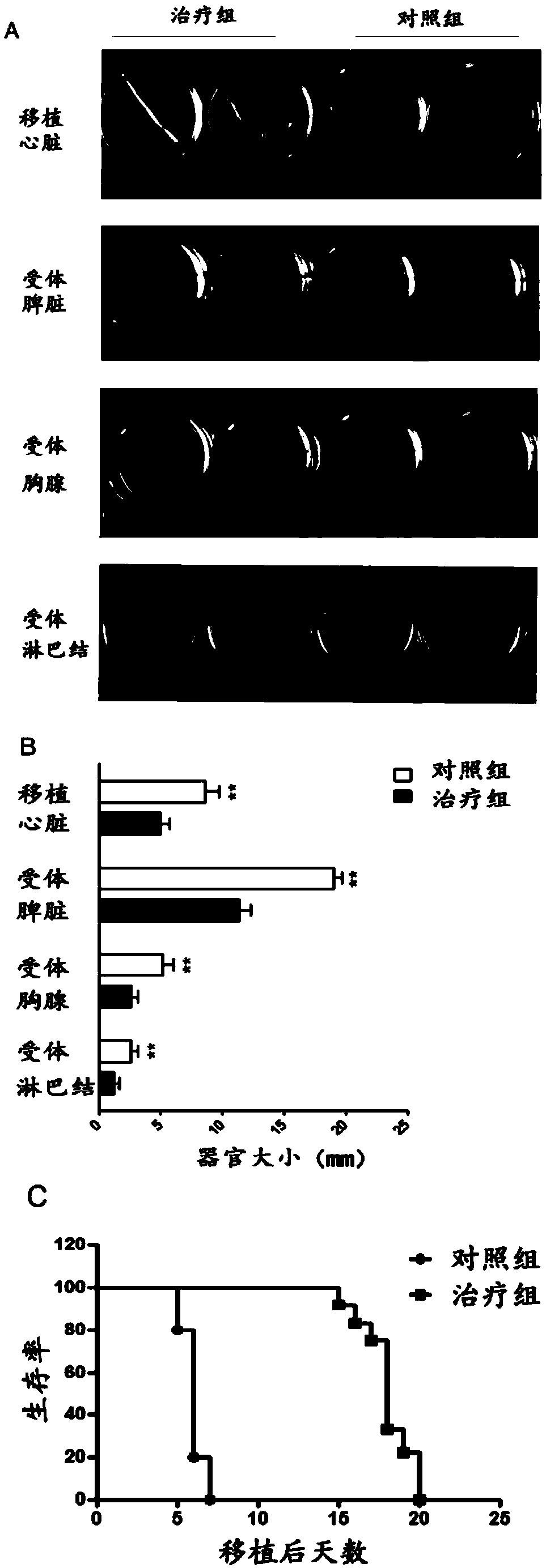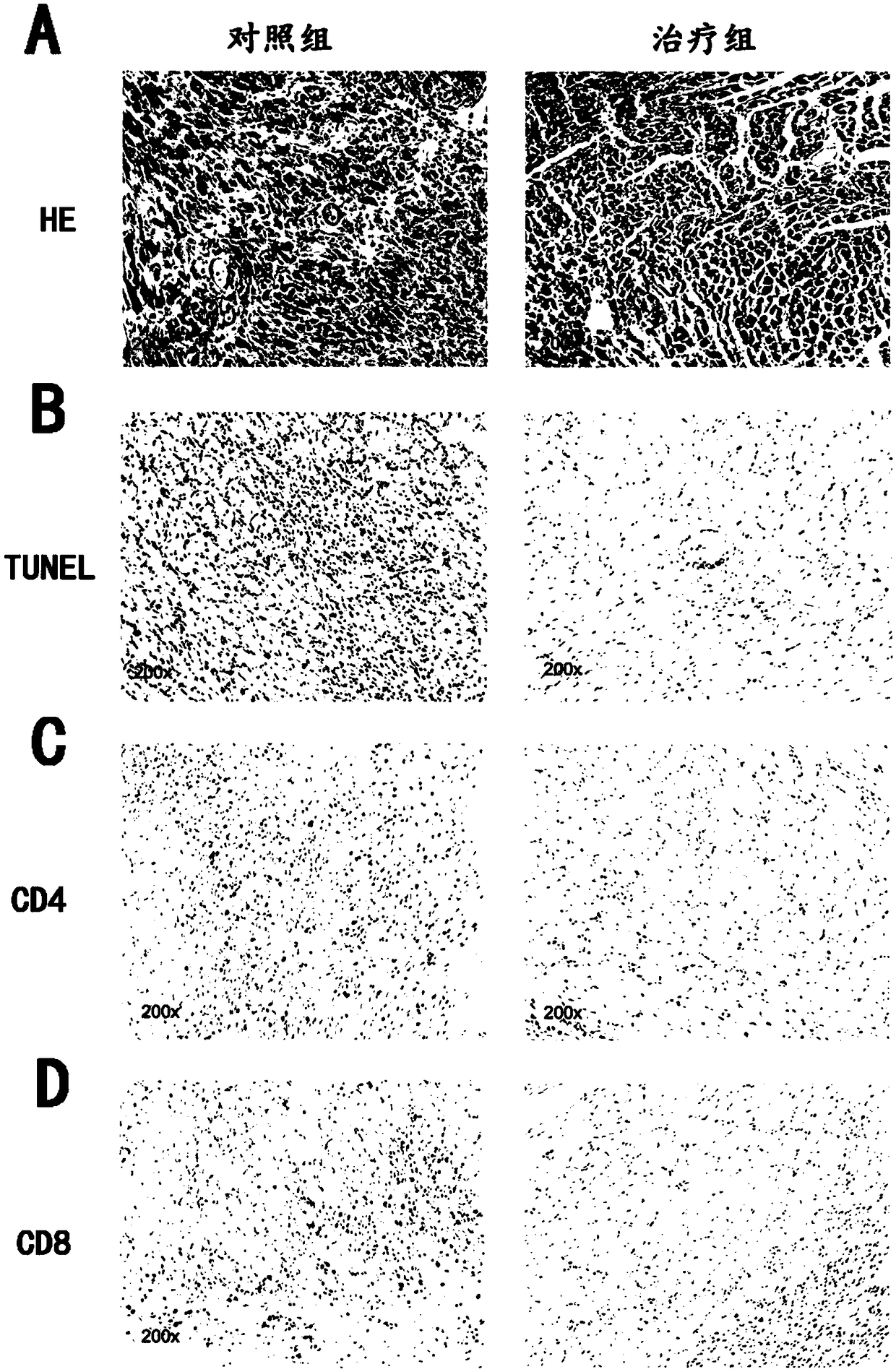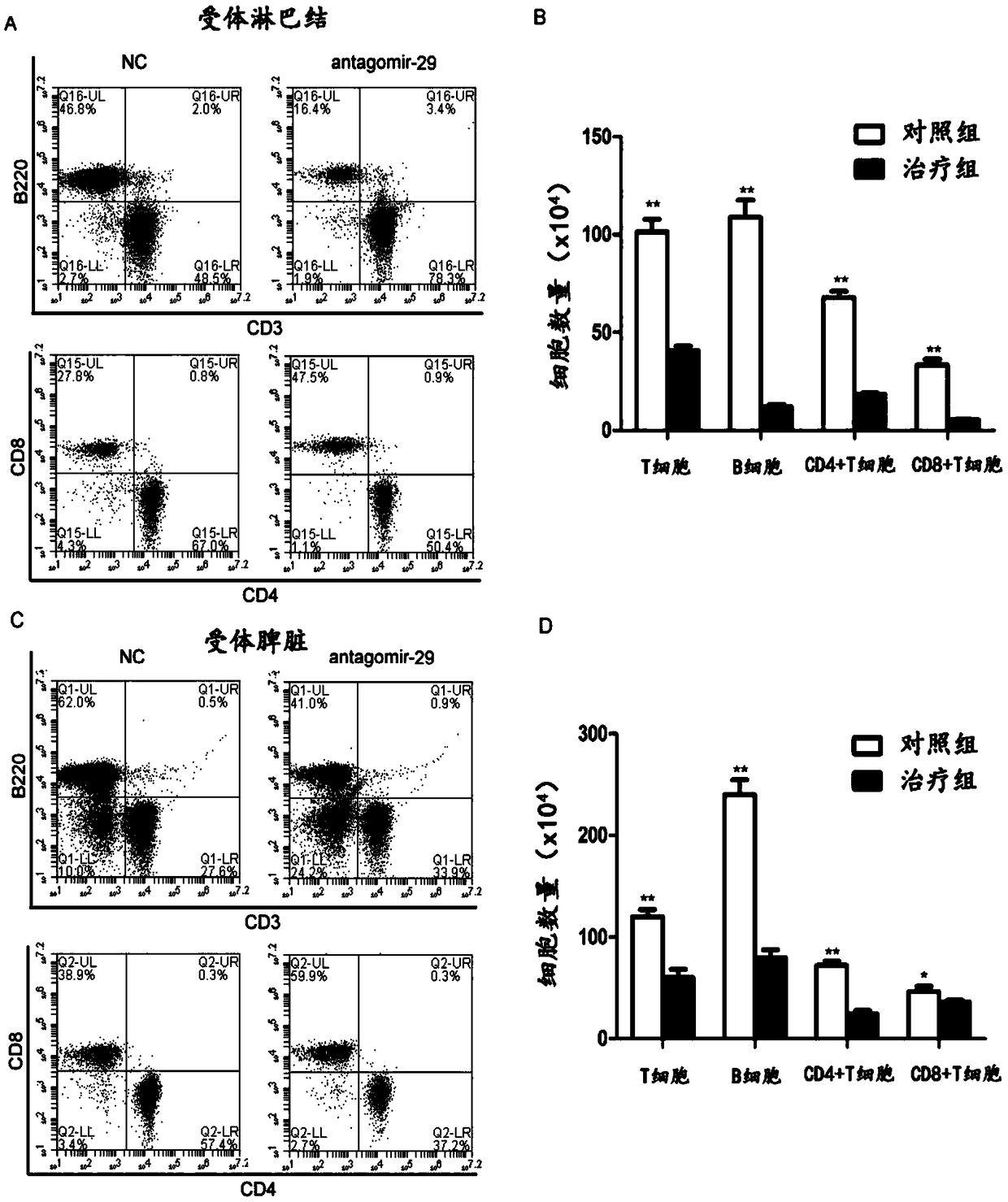Application of mir-29 and its inhibitors in the preparation of anti-organ transplantation rejection drugs
A technology of antagomir-29, 1. antagomir-29, which is applied in the application field of preparing anti-organ transplant rejection drugs
- Summary
- Abstract
- Description
- Claims
- Application Information
AI Technical Summary
Problems solved by technology
Method used
Image
Examples
Embodiment 1
[0032] Example 1: antagomiR-29 significantly inhibits acute rejection after organ transplantation
[0033] experimental method:
[0034] 1. Establishment of an allogeneic mouse neck heterotopic heart transplantation model
[0035] Heterotopic heart transplantation in the mouse neck was performed using the improved Cuff technique, that is, C57BL / 6 mice were selected as recipients, BALB / c mice were used as donors, and the ascending aorta of the donor heart was cuffed with the common carotid artery of the recipient mice. Cannula and cerclage fixation; donor cardiopulmonary artery and recipient mouse external jugular vein cannula and cerclage fixation. After the operation, the transplanted heart was deemed to have been rejected if there was no sign of beating by visual inspection and touch. If the beating stopped within 48 hours or the recipient mice died, it was considered as a failure of the model.
[0036] 2. Experimental grouping
[0037] The experiment was divided into tw...
Embodiment 2
[0048] Example 2: antagomiR-29 significantly inhibits antibody-mediated rejection (AMR)
[0049] Summarizing the previous experiments, we found that antagomiR-29 can effectively play an anti-graft rejection role and prolong the survival time of grafts. The possible mechanisms are as follows: 1. AntagomiR-29 may effectively inhibit the infiltration of immune cells in the transplanted heart by inducing immune cell apoptosis and inhibiting the proliferation of immune cells; 2. AntagomiR-29 may participate in antibody-mediated immunity by regulating B cells. immune rejection (AMR, antibody mediated rejection). Since chronic rejection has become the most important cause of long-term graft failure, we first focus on B cells. First, we adoptively reinfuse sensitized B cells into BALB / c--C57BL / 6-Rag2 - / - Mice were transplanted with hearts, and the survival of the grafts was observed.
[0050] experimental method:
[0051] 1. Establishment of an allogeneic mouse neck heterotopic he...
Embodiment 3
[0063] Example 3: Endogenous inhibition of miR-29 expression by sponge technology can significantly affect the development of B cells, reducing the number and proportion of peripheral B cells
[0064] experimental method:
[0065] 1. Acquisition of miR-29Sponge (GS29) transgenic mice
[0066] The miR-29Sponge (GS29) transgenic mice were constructed by Southern Model Organisms Company. The obtained heterozygous mice were crossed with C57BL / 6 mice for more than 10 generations. Total RNA was extracted from the mouse tail, reversed, and the level of miR-29 was quantitatively detected. A CT value lower than 20 was regarded as a transgenic mouse.
[0067] Upstream primer: 5'-GAGCAAAGACCCCAACGAGAAG-3', SEQ ID NO.4
[0068] Downstream primer: 5'-TCTACA A ATGTGGTATGGCTGAT-3', SEQ ID NO.5.
[0069] 2. Flow cytometric detection of B cell subsets
[0070] GS29 mice were taken, and wild mice of the same littermate were used as controls. After the mice were sacrificed, the skin of the...
PUM
 Login to View More
Login to View More Abstract
Description
Claims
Application Information
 Login to View More
Login to View More - R&D
- Intellectual Property
- Life Sciences
- Materials
- Tech Scout
- Unparalleled Data Quality
- Higher Quality Content
- 60% Fewer Hallucinations
Browse by: Latest US Patents, China's latest patents, Technical Efficacy Thesaurus, Application Domain, Technology Topic, Popular Technical Reports.
© 2025 PatSnap. All rights reserved.Legal|Privacy policy|Modern Slavery Act Transparency Statement|Sitemap|About US| Contact US: help@patsnap.com



